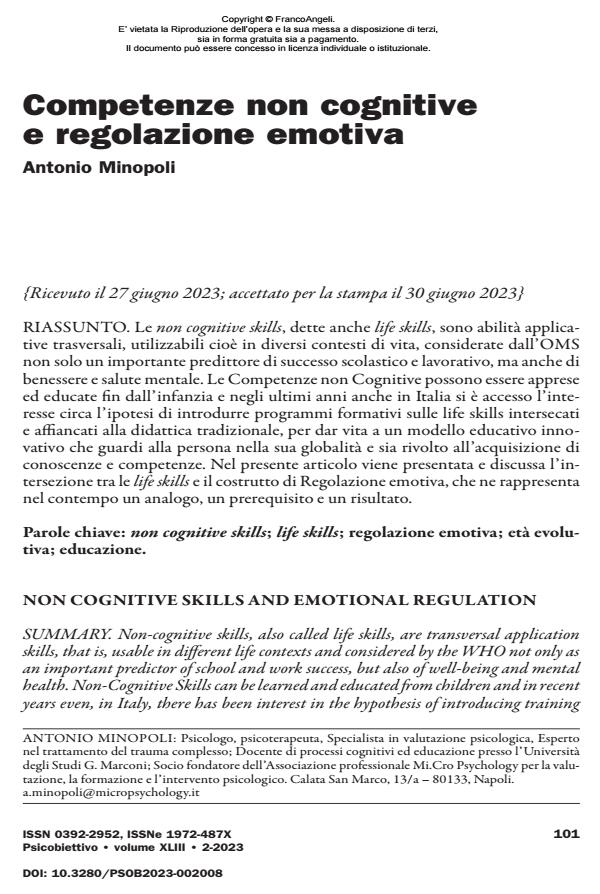Non cognitive skills and emotional regulation
Journal title PSICOBIETTIVO
Author/s Antonio Minopoli
Publishing Year 2023 Issue 2023/2
Language Italian Pages 22 P. 101-122 File size 714 KB
DOI 10.3280/PSOB2023-002008
DOI is like a bar code for intellectual property: to have more infomation
click here
Below, you can see the article first page
If you want to buy this article in PDF format, you can do it, following the instructions to buy download credits

FrancoAngeli is member of Publishers International Linking Association, Inc (PILA), a not-for-profit association which run the CrossRef service enabling links to and from online scholarly content.
Non-cognitive skills, also called life skills, are transversal application skills, that is, usable in different life contexts and considered by the WHO not only as an important predictor of school and work success, but also of well-being and mental health. Non-Cognitive Skills can be learned and educated from children and in recent years even, in Italy, there has been interest in the hypothesis of introducing training programs on life skills intersected and flanked by traditional teaching, to give life to an innovative educational model that looks at the person as a whole and is aimed at the acquisition of knowledge and skills. In this article the intersection between life skills and the construct of Emotional Regulation is presented and discussed, which simultaneuously represents an analogue, a prerequisite and a result.
Keywords: non cognitive skills; life skills; emotional regolation; childhood; education.
Antonio Minopoli, Competenze non cognitive e regolazione emotiva in "PSICOBIETTIVO" 2/2023, pp 101-122, DOI: 10.3280/PSOB2023-002008